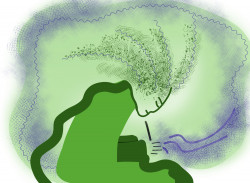
I play taiko because it’s good for the soul, body and mind; it empowers me, and enables me to connect musically with others—men and women alike—who share a passion for this ancient ceremonial art. Our teacher, a middle-aged Japanese woman, is a veritable leader and a great source of inspiration.
Throughout history, women like her have furthered women’s emancipation. Yet, in the Information Age, the status of women is still precarious. So, we must ask ourselves: Have we failed to raise greater awareness and foster wider public engagement?
While women worldwide do enjoy more rights today than a century ago, those in developing nations still face great discrimination and hostility. This is something rigorously documented and repeatedly denounced by organizations such as Amnesty International, UN Women, and Human Rights Watch. The web page of the HRW Women’s Rights division points to the severity of the problem:
“Despite great strides made by the international women’s rights movement over many years, women and girls around the world are still married as children or trafficked into forced labor and sex slavery. They are refused access to education and political participation, and some are trapped in conflicts where rape is perpetrated as a weapon of war. Around the world, deaths related to pregnancy and childbirth are needlessly high, and women are prevented from making deeply personal choices in their private lives.”
Women and girls in many high-income nations also grapple with sexual harassment and gender inequalities. According to UN Women, 40 to 50 percent of EU women experience unwanted sexual advances, physical contact, or other forms of sexual harassment at work. Studies have shown 30 to 40 percent of women face a similar ordeal across Asia. In the U.S., “83 percent of girls aged 12 to 16 [have] experienced some form of sexual harassment in public schools.”
Meanwhile, the feminist dream that women can “have it all” is slowly fading. The reality is, raising a family while climbing the corporate ladder is difficult—unless we’re willing to sacrifice family life. Women still face barriers to promotion, remaining conspicuously underrepresented in top executive and board positions. Significant pay disparities also persist in the G-20. In the U.S., the Institute for Women’s Policy Research recently found that “female full-time workers made only 78 cents for every dollar earned by men, a gender wage gap of 22 percent.”
According to Tomoko Otake in a piece written for The Japan Times, nearly 30 years after the National Diet enacted the Equal Employment Opportunity Law, more than 50 percent of Japanese women still would rather become a housewife after marriage or childbirth. Not surprising, given the rigid work culture, long hours and gender income gap—the second greatest among OECD countries. However, with Japan’s rapidly declining population, the necessity to bring more women into the workforce has increased. To address this, Prime Minister Abe announced, in 2013, his “womenomics” policy package, aiming to boost the number of women in senior management by 2020.
Marilyn Frye, notable American philosopher and feminist theorist, believes “the locus of sexism is primarily in the system and framework, not in the particular act.” Clearly, if we wish to end discrimination in all forms, we must reform existing social structures and institutions in ways that help create and sustain new perspectives on gender diversity. But first, we need to redefine gender roles.
Consider this: While women have rightfully benefited from the introduction of gender-specific legislation and policies, men are often penalized in areas like property division, paternity leave, spousal support, and alimony, to name a few. This owes to persistent social stereotypes, prevailing expectations, and lack of progressive reforms. Another problem is that men—and boys—are also subjected to sexual discrimination, a fact that’s consistently ignored. Males, regardless of ethnicity and sexual orientation, regularly fall prey to sexual assault or other forms of violence, but are less likely to report the incidents for fear of being ridiculed or stigmatized.
So, perhaps it’s time to recognize that we need to rally more men to our cause. If we’re serious about achieving gender equality, we must work together to fight all forms of discrimination, whether arising from gender, race, age, disability, or sexuality. Neither incitement to hatred against men nor endorsement of antiquated belief systems catering to patriarchy will move society forward.
Sure, it’ll never be perfect. But if we beat our drums in unison and work together to achieve harmony, we can bring about change and innovation for the perpetual betterment of humanity.







